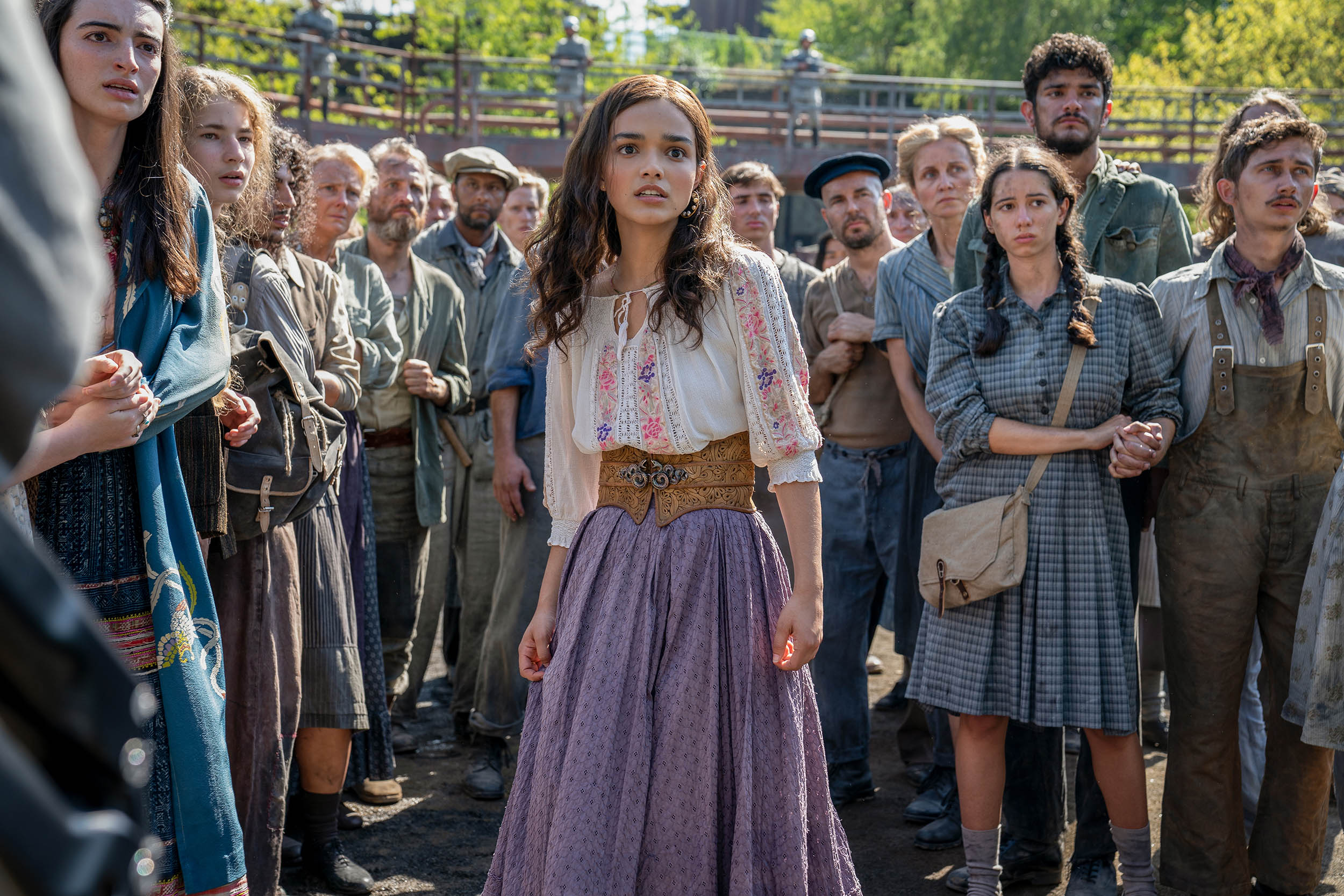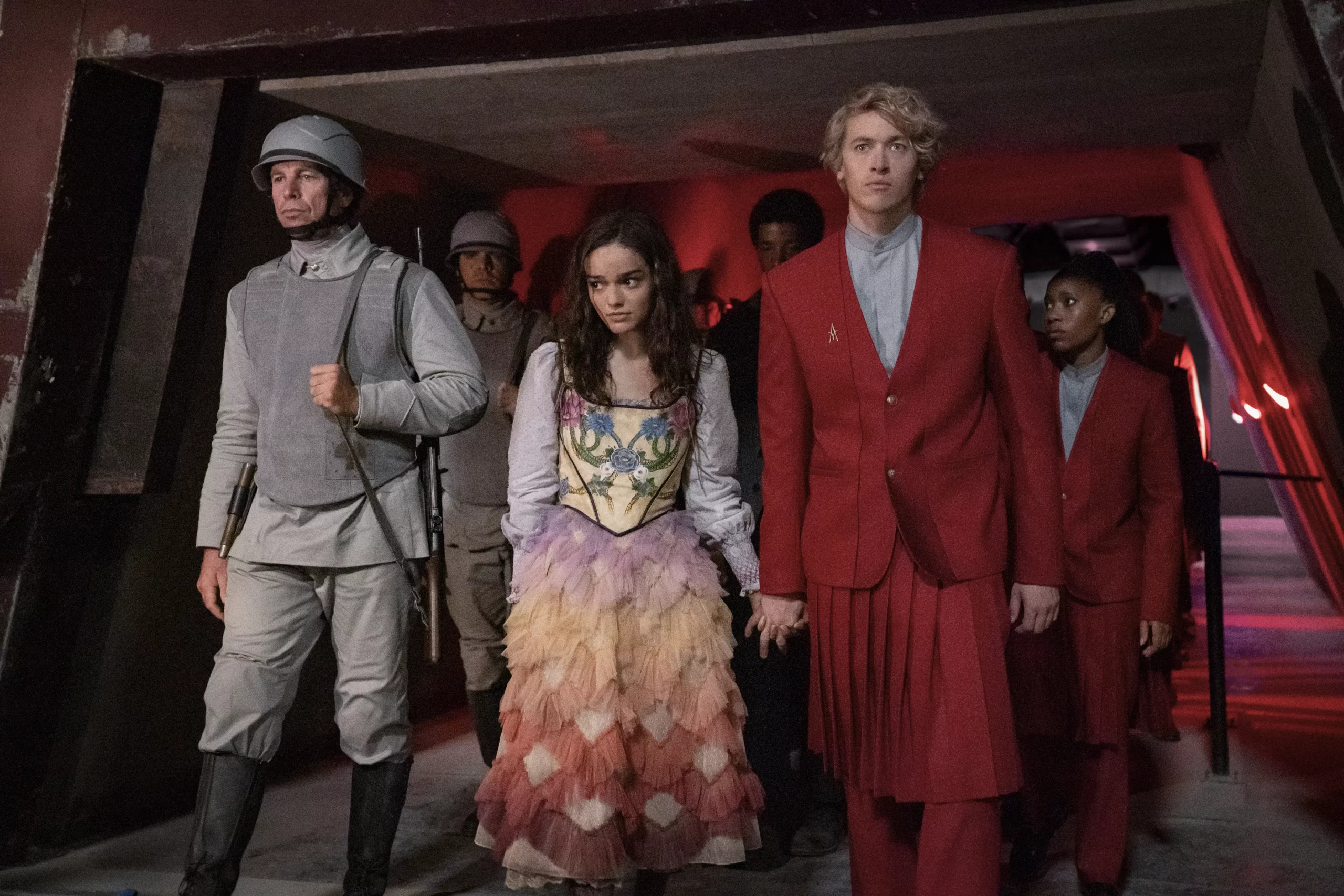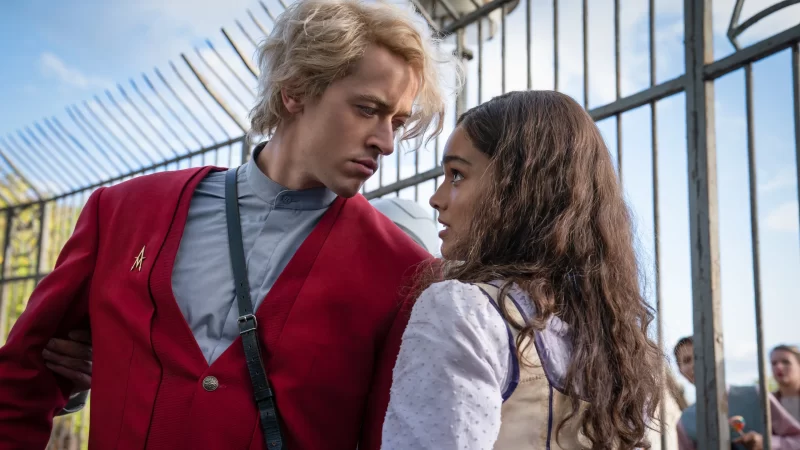The Hunger Games, adapted from Suzanne Collins’ eponymous novel, introduced Jennifer Lawrence into our lives and transformed into one of the rare successful book adaptations for the screen. This four-part saga delved into the notion that those in power often fail to comprehend the plight of the oppressed, succumbing to the spirit of the prevailing trends and losing touch with empathy. Despite finding the final two films somewhat lacking, The Hunger Games stood out as one of the few films that compellingly conveyed the struggle for freedom.
“It’s the things we love most, that destroy us.”
The primary advantage of plunging headlong into the established orders that have persisted for years lies in the potential to return, contingent upon the audience’s acceptance of the narrative, armed with a novel tale explicating the origins of the order. The Hunger Games: The Ballad of Songbirds & Snakes follows suit with many successful universes by venturing back in time, transporting us to the early days of this savage spectacle. However, unlike its counterparts, it doesn’t take us to the very starting point but instead a few years ahead, to the pivotal year when the new Hunger Games regime is about to take shape.
Let’s briefly touch upon the plot… In Hunger Games, initiated by Dean Casca Highbottom (Peter Dinklage), there are issues with ratings. Not only that, but academy students also question the righteousness of the order. Exploiting this chaos, Coriolanus Snow (Tom Blyth) proposes an idea to Dr. Volumnia Gaul (Viola Davis), the game’s designer, that will boost ratings: instead of treating the chosen ones like animals, show the audience that they are also human, prompting them to pick sides. In response, Coriolanus Snow begins to closely engage with Lucy Gray Baird (Rachel Zegler), whom he will mentor, doing everything in his power to ensure her victory.

Fundamentally, the film focuses on the transformation of President Snow, the primary antagonist of the original story. We witness Coriolanus Snow’s encounter with the ruthless world as he seeks the victory of the vibrantly dressed girl while simultaneously striving to rescue his family from financial hardship. Of course, at the core of this transformation, there is always love. While the film adeptly portrays the character’s evolution stemming from a love that ends in failure, it somewhat falls short in adequately exploring the so-called “savages” outside the Capitol. Although we sense the character’s disdain for the environment he finds himself in, the aspect that fuels his hatred appears to be an elusive love rather than a connection with the common people, which, at least for me, veers into somewhat clichéd territory.
The film departs from the accustomed extravagant displays that highlight the participants in the familiar Hunger Games, instead endeavoring to focus on the conflict between the inhabitants of the Capitol and those relegated to the periphery. However, in my opinion, the film falls short in this regard. The insufficient exploration of Coriolanus Snow’s estrangement from the populace, coupled with what I perceive as a lackluster portrayal of the conflict between two disparate communities, diminishes the film’s impact. The brief segment delving into the wartime era that opens the film feels incongruous for this reason. Despite Coriolanus Snow referencing those times throughout the film, excising the introduction does not detract anything substantial from the narrative.
Diverging from the original series, the film, which centers on events from years past, adeptly reflects the primitive conditions of that era. The rudimentary game conditions, the ascription of savagery to the contestants, technological frailty, and numerous other details render The Hunger Games: The Ballad of Songbirds & Snakes a period piece. Director Francis Lawrence’s frequent use of close-ups and dynamic shots distinguishes the film from the original series, underscoring the director’s considerable growth over the intervening years. The inclusion of Michael Lesslie and Michael Arndt in the writing team had instilled in me a firm confidence in the film. Despite perceiving issues in character development, the narrative they crafted remains consistent and compelling.
Of course, the sole detail that renders the film captivating is Rachel Zegler. She undeniably possesses a star quality. However, there are aspects that are overly conspicuous. Her occasionally excessive acting needs refinement, relinquishing the desire to be the star in every scene. Undoubtedly, she exhibits strong acting skills and possesses a charismatic presence that captivates the audience. Considering the potential success of The Hunger Games: The Ballad of Songbirds & Snakes, I am confident that, from this point forward, Zegler will need to make prudent choices in her film projects. Steering clear of failures like Shazam and making judicious selections will undoubtedly elevate her prominence in future discussions.

I must devote a paragraph to Viola Davis and Peter Dinklage. Viola Davis, whom I’ve been familiar with since How To Get Away with Murder, deserves all the accolades bestowed upon her. She is a phenomenal actress. While characters in the Hunger Games series stand out for the elegance of their attire, Viola Davis eclipses the film with the colorful expressions of her character. On the other hand, seeing Peter Dinklage on screen again is a great pleasure. A performer not overshadowed by Viola Davis, he stands as one of the most talented actors on today’s cinematic stage. Closing my paragraph, I express the opinion that Hunter Schafer should grace the screens more frequently.
In essence, The Hunger Games: The Ballad of Songbirds & Snakes focuses on the bygone era of the original film, delving into the concluding period of the primitive game. The film, depicting the events of the final year when the rules and system undergo a comprehensive transformation, unfolds the narrative of President Snow’s metamorphosis—the story of an innocent youth who goes to great lengths to save the girl who captures his interest, only to transform into the unfeeling embodiment of all the egos in the society he inhabits. The film succeeds as a period piece, satisfying as an action film, and delivers what the audience expects. However, at its core, the attempted character transformation falls short, turning into the story of a man who, fueled only by the hatred stemming from a failed love, punishes the vulnerable without adequate development.

Cast & Crew
director: Francis Lawrence
writers: Michael Lesslie, Michael Arndt
starring: Rachel Zegler, Tom Blyth, Viola Davis, Peter Dinklage, Hunter Schafer
USA | 2023 | 157 MINUTES |
